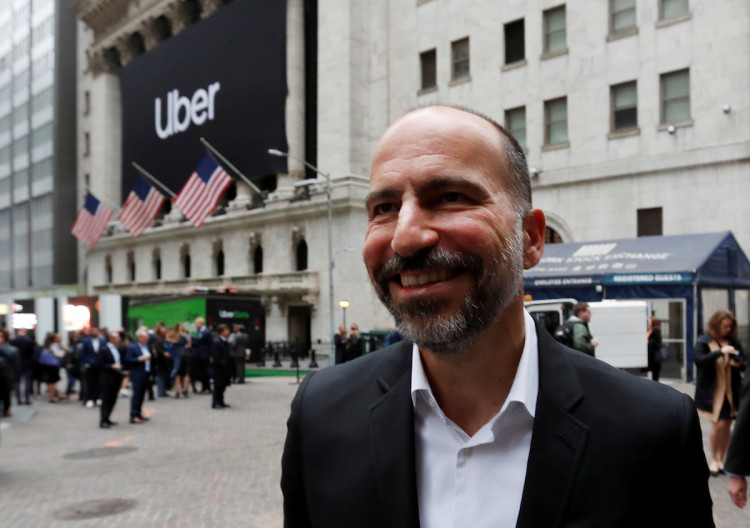Underwriters for Uber's less than sterling IPO resorted to a tactic called a "naked short" to prop-up the stock once it became clear it wasn't getting enough investor support before the IPO.
Led by Morgan Stanley, Uber's underwriters were so worried Uber's IPO had run into trouble, they decided to do a naked short ahead of the deal last week. The naked short provided extra support for the stock, according to people with knowledge of the move cited by media.
Uber's prospectus warned resorting to a naked short was a possibility.
A naked short allows underwriters to sell shares in excess of the "greenshoe" and then buy them back in the open market. A greenshoe is a clause contained in the underwriting agreement of an IPO that allows underwriters to buy up to an additional 15 percent of company shares at the offering price.
A naked short is goes above and beyond the traditional help, an IPO can receive. A greenshoe also provides more support for an IPO in case of trouble.
Experts note that in every IPO, there's an over-allotment that allows underwriters to sell 115 percent of the available offering to investors. This greenshoe effectively opens a short position. The excess 15 percent can be bought by the underwriters in the open market, thereby covering the short position to support the stock if it fell, which it did in Uber's case.
Some underwriters tried to console Uber's IPO investors before to the opening of trading by telling them there would be additional support from the naked short, according to people familiar with the event. The exact size of the naked short wasn't revealed, but is expected to have been "fairly small."
Despite resorting to naked shorting, Uber stock plummeted 18 percent in its first two days of trading as heavy trading volume ate away at the banks' ability to support the stock price. Shares of Uber were higher by 2 percent as of midday on Tuesday.
Naked short selling as part of a syndicate in an IPO is still legal, said the U.S. Securities and Exchange Commission (SEC), and was disclosed in Uber's prospectus as a possibility.
"A naked short position is more likely to be an option if the underwriters are concerned that there may be downward pressure on the price of the common stock in the open market after pricing that could adversely affect investors who purchase in this offering," said Uber in the filing.
Uber's bankers netted $100 million in fees from underwriting the deal, based on the 1.3 percent fee charged for managing the offering. It's unknown how much they generated from the naked short.





